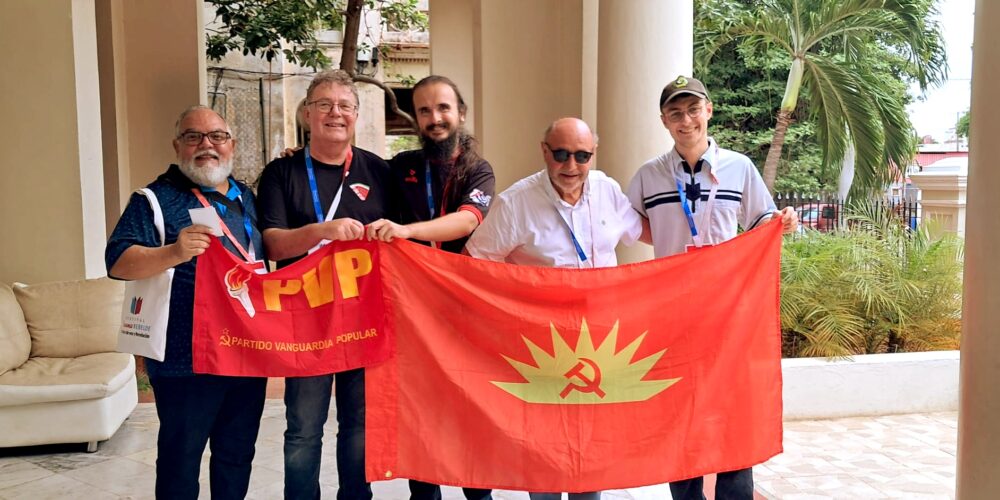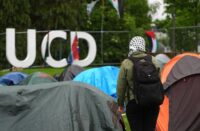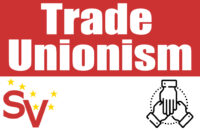The 3rd International Meeting of the Theoretical Publications of Leftist Parties and Movements (15–17 October) and the 1st Festival Granma Rebelde (17–19 October) constituted an important programme leading to the Cuban National Culture Day on 20 October this year. Organised in a period of extreme difficulty for the people of Cuba—and during what is proving to be another disastrous term for Donald Trump in the White House—both events held symbolic and material importance for the international solidarity movement, the international communist movement, and the people of socialist Cuba, who are heroically fighting the inhumane blockade.
Delegates from three dozen countries around the world gathered in Havana to discuss pressing issues of our time, show solidarity with Cuba, and reinforce the connections within the international movement. The first event, the meeting of the theoretical publications, took place at the Nico López University of the Communist Party of Cuba. A series of interesting panel discussions and keynote lectures over the course of three days formed the core of the programme, allowing ample space for bilateral contacts between parties and movements on the margins of the meeting, and engagement in a rich cultural programme.
Here I include some selected impressions from the official programme. From the very beginning, the centre stage saw moving displays of solidarity with Venezuela, which is under attack from the United States: delegates from Venezuela, the rest of Latin America, and the world spoke repeatedly about the danger Venezuela and the region face from US aggression. This culminated in a public display of solidarity organised on the morning of Friday, 17 October, at the statue of Simón Bolívar the Liberator in Havana, where 50 thousand people, including us delegates from the International Meeting, sent a strong message of solidarity to Venezuela under imperialist attack. Of course, two other pillars of solidarity for the events taking place in Havana this October were international solidarity with Cuba under the US imperialist blockade, and solidarity with Palestine.
Many of the panels and keynote presentations examined artificial intelligence from a diversity of angles. The topic emerges naturally in the context of a meeting of theoretical leftist publications: firstly, it plays a significant role in modern communication, disinformation, and the control of information flow; secondly, it affects workers by changing the conditions and availability of work; finally, it affects the environment we live in through its consumption of resources and power. In a very rich discussion programme, we saw panels on new forms of fascism, new forms of communication, and the youth’s role in building a better world. In discussions, comrades from around the world did not shy away from constructive criticism, bringing up important points and opening new avenues of thinking and organising.
The programme included a visit to the Fidel Castro Centre, a block party in a local community in Havana, and a book launch for multiple important publications from around the world from the last year. At the end of the meeting on Friday, 17 October, a strong final declaration was presented before the singing of The Internationale and the proceeding to the next event in the calendar: the inaugural Granma Rebelde festival. One of the major practical points in the declaration remains the creation of a strong international network of leftist publications, an initiative coming from the First Secretary of the Communist Party of Cuba and the President of the Republic, Miguel Díaz-Canel. Díaz-Canel showed strong support for the events in Havana this October: he spoke at the opening ceremony of the publications meeting, attended the closing ceremony, attended the opening ceremony of the Granma Rebelde festival, and convened the mass rally in support of Venezuela. Alongside Díaz-Canel, the efforts and attention of the other members of the Party Politburo and multiple leading institutions of the Republic were notable.
The Granma Rebelde festival celebrated journalism and the written word in revolutionary Cuba: Granma and Juventud Rebelde as the official organs of the Party and the Youth have defined the standard and expectations in Cuban media over the past six decades. Stalls at the festival were full of literature, periodicals, and cultural outputs from Cuba and the world: Cuban media, cinema, and art were well represented, alongside international press outlets like Telesur, Almayadeen, Junge Welt, and others. Through a programme of panel discussions, the festival opened political and cultural topics to a wider audience, speaking of the history of the revolution and the press, the future world we are fighting for, and success stories from different organisations and media. With a lineup of concerts, artworks, and performances, the festival offered a diverse, multi-medial experience for attendees, both national and international. It was a major success and an impressive show of the organisation, creativity, and steadfastness of the Cuban comrades in charge of setting it up.






